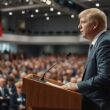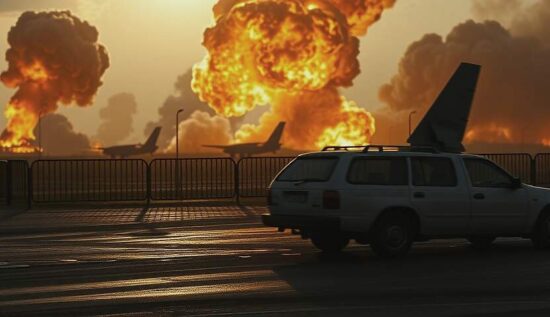Russian Ex-President Criticizes US for Nuclear Tensions
On April 8, 2010, then Russian President Dmitri Medvedev and his US counterpart Barack Obama signed the New START treaty, a bilateral agreement aimed at limiting strategic arms and nuclear warheads. However, Medvedev, now a member of the Russian Security Council, has stated that the treaty has not reduced the risk of a nuclear war, citing the stance of the United States and its allies.
According to Medvedev, the US and its allies have decided to maintain a nuclear parity with Russia, while simultaneously being able to wage an undeclared war against Russia, using unlimited sanctions and their own weapons and experts. This, he claims, has put the world at risk of a third world war.
Medvedev also criticized the previous US administration under Joe Biden, stating that they had insisted that there was no risk of a nuclear conflict, calling this a “cynical lie.” He believes that the threat had reached its peak.
The Trump administration, he said, at least acknowledged the threat in words, although it had proposed a record one-trillion-dollar defense budget.
Medvedev also targeted European countries, calling them “idiots” for not being aware of the situation, as they had started to threaten with their “limited strategic potential.”
He warned that the situation is such that even in the event of a complete end to the conflict over Ukraine, a nuclear disarmament in the coming decades is impossible.
According to Medvedev, new types of weapons with even greater destructive power are being produced worldwide and more countries are acquiring nuclear arsenals.
The START-III treaty is set to remain in force until February 2026. In 2023, Russian President Vladimir Putin announced the suspension of the country’s participation in the treaty. So far, Moscow and Washington have not considered a new dialogue on strategic weapons.
In late February, Russia’s Deputy Foreign Minister Sergei Vershinin stated that Moscow is ready to resume strategic agreements with the US, but this would require a very careful and thorough approach. He emphasized the importance of a constructive attitude from the partners, based on mutual respect for each other’s interests, to ensure strategic stability.





